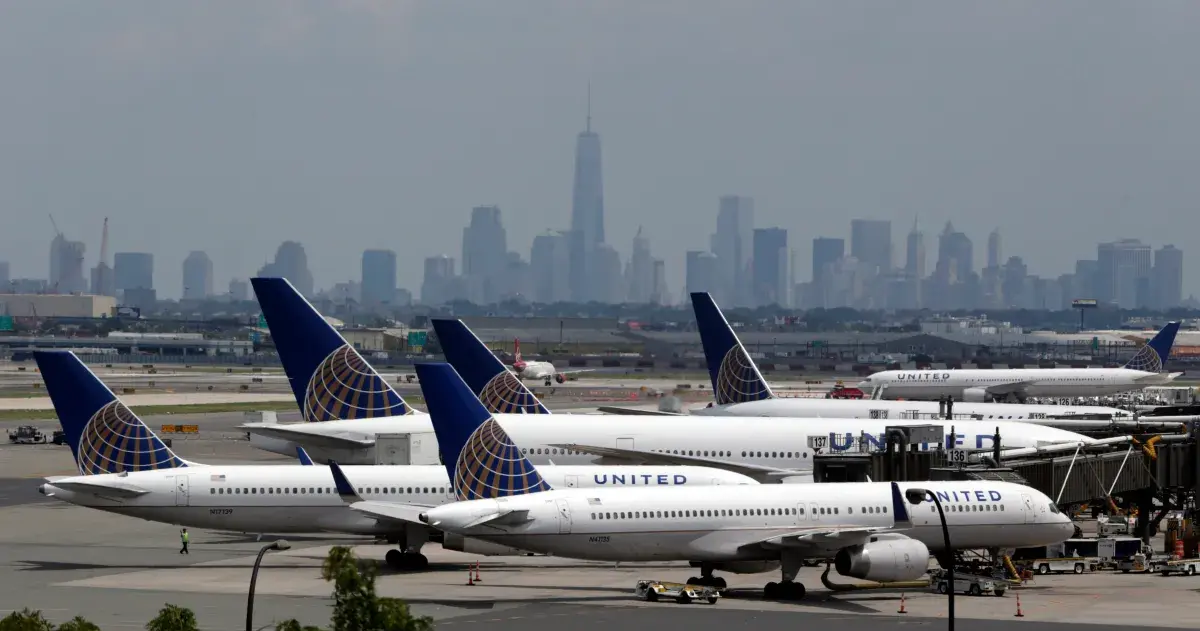Copyright Newsweek

The Federal Aviation Administration (FAA) has issued a directive requiring significant flight reductions at 40 of America’s busiest airports. This action is a direct response to the ongoing federal government shutdown, which began on October 1 and has now become the longest in U.S. history. The shutdown has led to staffing shortages among air traffic controllers, many of whom are working without pay, raising serious safety concerns. Why It Matters Major U.S. carriers, including Delta Air Lines, American Airlines, United Airlines, and Southwest Airlines, have canceled hundreds of flights in response to the FAA’s directive, reducing air travel and impacting millions of travelers. What To Know On November 5, Transportation Secretary Sean Duffy announced immediate mandates for airlines to cut at least 4 percent of scheduled flights at 40 major U.S. airports, with reductions escalating to 10 percent by November 14 if the government shutdown persists. Over 13,000 air traffic controllers and 50,000 Transportation Security Administration (TSA) agents are currently working without pay due to the ongoing government shutdown. The FAA’s directive is aimed at addressing safety risks and fatigue stemming from these staffing pressures. On November 8, U.S. airlines canceled at least 1,566 flights due to the FAA's mandated flight reductions, according to according to flight tracking service FlightAware, with projections that these numbers will rise if the shutdown continues. Major hubs seeing the most disruption include Atlanta, Denver, Dallas, Orlando, Miami, and San Francisco, and in some of the nation's biggest city airports, including those in New York, Houston and Chicago. In response to the FAA's mandate, four major U.S. airlines—Delta Air Lines, American Airlines, United Airlines, and Southwest Airlines—have announced extensive cancellations: Delta Air Lines Delta announced more than 320 Delta mainline and 150 Delta Connection cancellations on November 9, warning there could be more coming. The airline is allowing passengers to change, cancel, or refund their flights without any penalties and has advised them to visit the website or app to check the status of flights or to explore alternative options. American Airlines American Airlines canceled approximately 220 flights on November 7, and is planning to cancel about 200 flights on November 11. American Airlines is “continuing to communicate with impacted customers,” but has said that anyone who has had their flight cancelled, or those who have decided not to travel on their booked flight, will be able to change their flight or request a refund without any penalty. United Airlines United canceled at least 158 flights on November 9, 186 for November 10, and is expected to ground around 263 on November 11, according to USA Today. It will focus on reducing regional and non-hub flights to minimize impact on international and hub-to-hub flights. United has told passengers that they will give them “several days' advance notice” of any changes or cancellations, and any passenger can get a refund if they choose not to fly, regardless of whether their flight was changed or cancelled. Southwest Airlines Southwest confirmed that it had canceled around 140 flights on November 9 and 10, which will increase to 155 by November 11, across 34 of the more than 117 airports it serves. The airline has reassured passengers that the “vast majority” of flights will not be disrupted, but anyone who has been impacted will be contacted. If customers choose not to travel, or have had their flights changed or canceled, they will be eligible for a refund. What People Are Saying In its official release, Delta Airlines said: “Second only to safety, Delta people’s focus is taking care of our customers, recovering diverted flights, and the safe operation of remaining flights.” American Airlines said, “Disrupting customers’ plans is the last thing we want to do, and we have issued a travel waiver to provide additional flexibility during the impacted travel period.” Southwest Airlines issued a statement that said: “Nothing is more important to Southwest than the Safety of our Customers and Employees. We continue to urge Congress to immediately resolve its impasse and restore the National Airspace System to its full capacity.” United Airlines established that: “The FAA’s goal is to relieve pressure on the aviation system so that every airline can continue to operate safely. That is the FAA’s highest priority, and ours as well. No matter what environment we’re operating in, we won’t compromise on safety.” What Happens Next Travelers holding tickets at affected airports are advised to monitor airline communications and official channels frequently for updates, rebooking options, and refund information. Additionally, there is a concern that ongoing disruption may push airfare prices up and cause further delays, even after normal service is fully restored.



